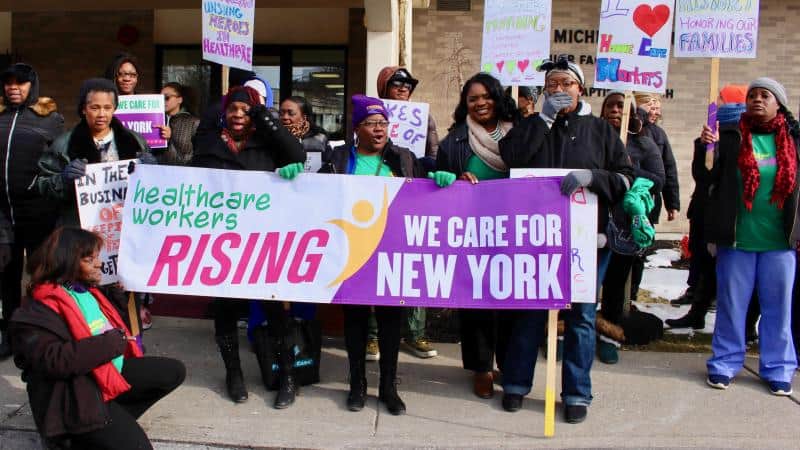Fran Swanson is a student at Harvard Law School.
After an eight-week strike, a group of Chicago-area auto mechanics has won a four-year contract, the Chicago Tribune reports. Over 800 mechanics, represented by IAM Mechanics’ Local 701, began the strike after their previous contract expired, shutting down service at 56 car dealerships after rejecting a contract offer from the New Car Dealer Committee. That offer included cuts to base pay and higher health care costs for workers. The agreement reached yesterday covers 35 dealerships where 600 mechanics remained on strike, after 21 dealerships broke with the New Car Dealer Committee to sign their own agreements with their striking workers.
The absence of “right to return” laws is harming hotel workers in Columbia, Maryland, the Washington Post reports. Approximately 100 people who worked at Merriweather Lakehouse were laid off in spring of 2020 and have yet to hear from the hotel about their old jobs, despite the fact that the hotel’s parent company received over $2 million in Paycheck Protection Program funds to help offset payroll. Unite Here Local 7, which represents the workers, has requested an audit of how the company spent the funds. The union decided not push for statewide right to return legislation after the hotel industry lobbied so aggressively over Baltimore’s right to return ordinance, which did go into effect. Now, the union and workers are calling for a boycott of the hotel. Angela Carillo, who worked at the hotel for 24 years, was able to send money back to her mother in Guatemala with her paycheck from her full-time work in banquet services and additional housekeeping work at another hotel. She explained that now, “I not only have to worry about my family but also me.”
Finally, a New York Times investigation into the home care industry underscored the need for greater protections for workers, especially as the pandemic continues. Almost one in five aides—who are overwhelmingly women of color and immigrants—live below the poverty line, with median pay increasing only $1.75 over the last decade. And, with states and the federal government sharing the cost of Medicaid, they are left unprotected by a patchwork of laws. They are often underpaid, paid late, and saddled with unaffordable benefits and chronic injuries. Even in places, like New York City, where they qualify for paid sick leave, many workers interviewed by the Times felt that they could not actually take that time off. Indeed, many home care workers feel pressure to take on every case offered to them in order to ensure a stable schedule. Dany St. Laurent, whose mother, Yvette Dessin, died of COVID-19 after her home care employer did not provide her with PPE, said that the feeling was that, “[w]hen you tell [your employer] ‘no,’ you are going to pay for that ‘no.’ You’re going to feel that ‘no.’”






Daily News & Commentary
Start your day with our roundup of the latest labor developments. See all
April 18
Disneyland performers file petition for unionization and union elections begin at Volkswagen plant in Tennessee.
April 18
In today’s Tech@Work, a regulation-of-algorithms-in-hiring blitz: Mass. AG issues advisory clarifying how state laws apply to AI decisionmaking tools; and British union TUC launches campaign for new law to regulate the use of AI at work.
April 17
Southern governors oppose UAW organizing in their states; Florida bans local heat protections for workers; Google employees occupy company offices to protest contracts with the Israeli government
April 16
EEOC publishes final regulation implementing the Pregnant Workers Fairness Act, Volkswagen workers in Tennessee gear up for a union election, and the First Circuit revives the Whole Foods case over BLM masks.
April 15
The Supreme Court ruled in favor of bakery delivery drivers in an exemption from mandatory arbitration case; A Teamsters Local ends its 18-month strike by accepting settlement payments and agreeing to dissolve
April 14
SAG-AFTRA wins AI protections; DeSantis signs Florida bill preempting local employment regulation; NLRB judge says Whole Foods subpoenas violate federal labor law.